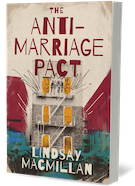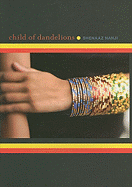Notes: Buckley Mortuus; Store Changes; Dutton's Remembered
William F. Buckley, Jr., "scourge of liberalism," intellectual leader of the modern conservative movement, founder of the National Review, newspaper columnist, TV show host and author of more than 55 books and editor of five more, died yesterday. He was 82.
In its obituary, the New York Times noted that Buckley's books ranged "from sailing odysseys to spy novels to celebrations of his own dashing daily life. . . . His political novel The Rake was published last August, and a book looking back at the National Review's history in November; a personal memoir of Barry Goldwater is due to be publication in April, and Mr. Buckley was working on a similar book about Ronald Reagan for release in the fall."
Requiescat in pace.
---
Effective April 7, Joci Tilsen and Jim Bour, owners of the Valley Bookseller in Stillwater, Minn., are selling their store to Molly Rice and Dan Priebe, according to the Pioneer Press. Tilsen and Bour told the paper that they want to focus on their grandchildren, In addition, Tilsen will continue her part-time job as the director of programs for the Minnesota Food Association, and Bour plans to write children's books.
Valley Bookseller is located at 217 North Main St., Stillwater, Minn. 55082; 651-430-3385; valleybookseller.com.
---
The Booksmith, Vineland, N.J., is closing at the end of March, according to the Daily Journal. Founded in 1973 and an original tenant of the Cumberland Mall, the 2,600-sq.-ft. Booksmith sold mainly discount books and stocked some 22,000 volumes. Owner Gerry Dooley says he will continue to handle book fairs and ordering instructional materials for commercial businesses and schools and may open a larger store elsewhere.
---
In response to the impending closing of nearby Dutton's Brentwood, Katie O'Laughlin, owner of Village Books in Pacific Palisades, Calif., told the Palisadian-Post about some of the strategies she takes to be competitive, particularly focusing on the community and adjusting inventory to customers' tastes.
"The inventory has changed over time," she told the paper. "I have expanded the mystery section and increased the travel section, particularly since the California Map Store on Pico closed. I have the summer reading lists from all the schools in place, which builds up the classics section." She carries few computer books "because the technology is constantly changing."
O'Laughlin also tries to "have something new and different in the bookstore, and [I] try to keep things lively." One example: the store "road trip" to Arcadia last fall, where a Chinese cookbook author accompanied guests to a Chinese banquet. She will continue making quarterly field trips like this.
---
In the Los Angeles Times, author T.C. Boyle gives a eulogy for Dutton's Brentwood, remembering his first visit to the store where immediately he was "tenderly wrapped in the aura of a bibliophile's paradise--the lighting dim, the interior hushed, a smell of print investing the air as if the presses were even then churning away in the basement."
Other fond moments: "Scott [Wannberg] informing me that Bob Dylan had been in and purchased one of my books (and me wondering: which one?).
"Reading in the courtyard because the store was too small to handle the crowd and worrying about the traffic noise until the thunder of a pair of Harleys obliterated all sense--and only then discovering that the bikes were piloted by my amigos, Chuck and Jorma, come to welcome me. . . .
"Having Scott introduce me with one of his wild, rabble-rousing poems and then standing back to watch the war of emotions play over the faces of the packed-tight crowd as I sang out my stories to them.
"And best of all: Listening to the hush on a steamy night, crowded in with the faithful to give and receive the precious words."
---
Can Mischa Barton do to Million Dollar Bash what Posh Spice did for Skinny Bitch?
That's the $19.95 question for Kevin Becketti, U.S. sales and marketing manager of Jawbone Press, who wrote us that Barton, the former O.C. actress, was photographed last week on the set of her current movie, The Homecoming, holding a copy of Million Dollar Bash: Bob Dylan, The Band, and the Basement Tape by Sid Griffin, which was published in paperback last October. (The book-and-Starbucks-in-hands moment has been immortalized online here and here.)
Last year, Posh Spice aka Victoria Beckham was photographed holding a copy of Skinny Bitch by Kim Barnouin and Rory Freedman. After the pictures ran in tabloids, sales of the book took off (Shelf Awareness, June 30, 2007).
---
Verbatim Booksellers, Vail, Colo., is on the market. The Vail Trail reported that owner Robert Aikens is selling the store for $250,000.
"I
just personally can't afford to take out any more loans or put in any
more money myself," said Aikens, who will keep the store open until he
finds a buyer. "I'm not going to go on and continue running a store if
it can't survive on its own."
He hopes to sell within a year,
but if he doesn't, he will move. "I couldn't live anywhere that doesn't
have a bookstore," he said.
---
"They are people who not
only read but also buy books intending to keep them." That's how Tom
Macaluso described his customers in a Philadelphia Inquirer profile of his bookstore, Thomas Macaluso Used & Rare Books, Kennett Square, Pa.
And
his books? "The age of the book is not the most significant factor," he
said. "What is the content? Is it a good book? Is the subject
noteworthy? Did it contribute to our culture? And is it still being
read? . . . I sometimes think of myself as a conservator. If it were
not for people like me, a great part of our culture might be thrown
away."
---
Podcast alert: in conjunction with the Kitsap Regional Library's Big Read Project, Paul Hanson, manager of Eagle Harbor Book Co., Bainbridge Island, Wash., interviewed Brian Herbert of Dune fame. The interview is available at tbrbh.wordpress.com.
---
What you read in Vegas stays in Vegas.
Although Sin City "famously caters to every sort of whim and taste and temptation," the Las Vegas Sun pointed out that "you really have to hunt for a bookstore" if you want to celebrate this year's Nevada Reading Week.
The Sun
helpfully scanned the Yellow Pages, which list "more than 100
bookstores in the Las Vegas area--but that list gets skinnier by half
when you filter out the adult bookstores. If you count out the
specialty stores--children's books, comics, religious, recovery and
self-help, and gambling--you're pretty much left with a handful of the
big chain bookstores Borders and Barnes & Noble."
Las Vegas native Charles Bock, author of the bestselling novel Beautiful Children,
said, "Vegas is America's great 21st-century city, but sadly, reading
is not a high priority there, and it's never likely to become one. The
constructs they put up are not there for your inner life. They are
there to take money out of your wallet, and reading doesn't do that.
The genius of the city is that at that solitary and private moment,
where you could open a book and get lost in your own private world,
Vegas has every single indulgence possible waiting to tempt you to do
something else."
---
In a USA Today
article headlined "Consumers cut back on small pleasures," one of those
consumers, Sara Winters, admitted that her family is now spending less
time at the local Barnes & Noble bookstore and more time at the
public library. Despite this strategic thrift shift, when she couldn't
find a series of scifi books for her son at either the library or
used-book store, she spent $40 for them at B&N, admitting, "When
your son wants to read, it's hard to say no."
B&N spokeswoman Mary Ellen Keating told USA Today that during recessions, consumers may pull back on big-ticket items, but they tend to keep buying books.
---
Effective May 1 and in time for the fall list, Newmarket Press sales and distribution in the U.S. and Canada will be handled by Perseus Distribution. Newmarket, which was founded in 1981 and publishes about 30 books a year, mainly in film, parenting, biography, health and self-help, has been distributed by W.W. Norton & Co. since 1999.
|






SHELFAWARENESS.0213.S4.DIFFICULTTOPICSWEBINAR.gif)







SHELFAWARENESS.0213.T3.DIFFICULTTOPICSWEBINAR.gif)
 For many young people, this debut YA novel will put Uganda on the map, and for those aware of Africa's violent conflicts, the author offers some insight into the seeds planted deep in its past. The book unfolds through the third-person perspective of 15-year-old Sabine. It opens on August 6, 1972--the morning after Uganda's president, Idi Amin, has had a dream that "all foreign Indians" must be expelled from the country--and the narrative extends through the 90-day period he gives the Indians to flee. As a man spits at Sabine, who is Ugandan-born but of Indian descent, her best friend, Zena, defends her. "One day you'll see with new eyes," the man replies, a foreshadowing of the pain to follow.
For many young people, this debut YA novel will put Uganda on the map, and for those aware of Africa's violent conflicts, the author offers some insight into the seeds planted deep in its past. The book unfolds through the third-person perspective of 15-year-old Sabine. It opens on August 6, 1972--the morning after Uganda's president, Idi Amin, has had a dream that "all foreign Indians" must be expelled from the country--and the narrative extends through the 90-day period he gives the Indians to flee. As a man spits at Sabine, who is Ugandan-born but of Indian descent, her best friend, Zena, defends her. "One day you'll see with new eyes," the man replies, a foreshadowing of the pain to follow.